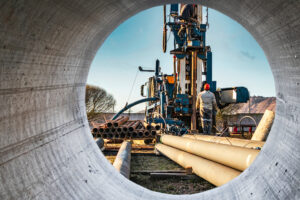Over the last few decades, we have become so accustomed to a rise in the cost of all valuable commodities that it comes as somewhat of a shock that oil prices are expected to take a nose dive towards the beginning of 2015. Across the globe, oil prices have dropped by a whopping 20% since the middle of the year.
There is a worry that the decline in oil costs means that certain companies will eventually be unable to cover the high costs of oil production. So, while motorists are set to enjoy major savings in the short term, there could inevitably be a fuel shortage and potentially astronomical increase in price at the other end of the tunnel. While this is probably a long way off, it might be a real threat worth considering.
There are a number of reasons for this surprising change in oil costs.
Discord in the Organization of the Petroleum Exporting Countries (OPEC)
Infighting between OPEC members is becoming a somewhat serious problem, resulting in the organization’s complete inability to reign in unnecessary oil production. The constant repetition in price wars is becoming increasingly ridiculous, with certain members competing to drop their prices further than others in an effort to gain more buyers in Asia. Research shows that Saudi Arabia and Kuwait are the main culprits in this situation.
A Simple Supply and Demand Equation
One of the major reasons for the immense drop in prices is the fact that the amount of oil production is severely unbalanced in relation to how much it is needed. Essentially, there is too much oil and not enough demand for it. In the United States, the spectacular increase in the production of shale oil can be blamed for the sudden lack of interest in previous fuel sources. In the space of 6 years, the production of this particular fuel has risen by at least 4 million barrels per day.
Rising Output from Brazil
Oil production outside of OPEC is rapidly gaining speed, with Brazil at the helm. Brazil’s Santos basin has had an output of nearly 206,000 barrels per day in 2014. In 2015, this number is expected to rise to around 325,000 barrels per day. While this immense growth in output does not account for the price drop alone, it certainly can be linked to the current growth in demand for oil country tubular goods. When oil production gains speed, the demand for tube and pipe products in the petroleum industry grows as well.
However, it must be noted that if the demand for oil continues to drop, it may spell a trouble for oil country tubular goods where the industry is already expected to become competetive in the next year due to a decrease in OCTG imports. If oil prices continue to drop as much as they have been, the oil industry could suffer a vast amount.
How this will Affect the Global Economy
If oil prices continue to decline, there will be clear winners and losers across the globe. Quite obviously, oil importers will stand on the winning side of the equation while oil exporters will face off on the opposite side. Countries like Russia, for example, rely on oil and gas exports to keep their economy afloat. These exports account for roughly 70% of Russia’s trade-related income. Further decline in oil prices could stunt growth in other areas, halting development and leaving the country to stagnate at a time where progression is crucial.
Dropping oil prices is no good news for this side of business, but we have yet to see how the industry takes the hit. Until then, it’s important to keep your tubular goods safe and secure for smooth rig operation and control of your own success. Contact MSI for all the essentials in pipe protection technologies.




